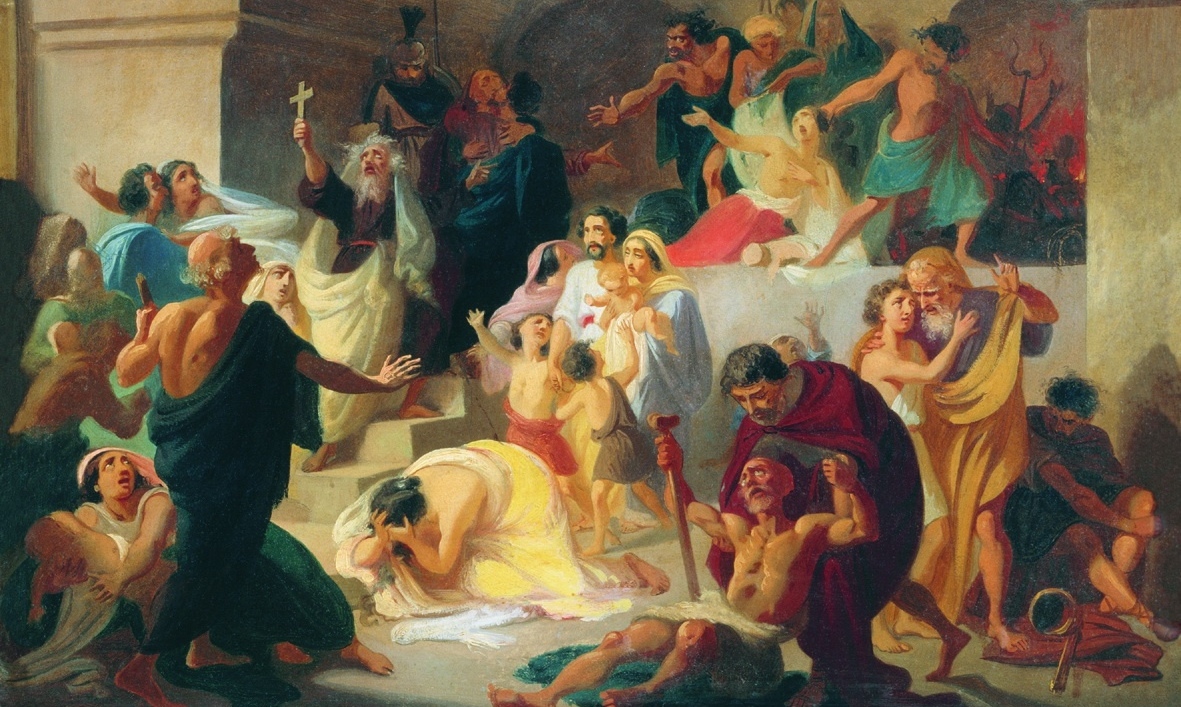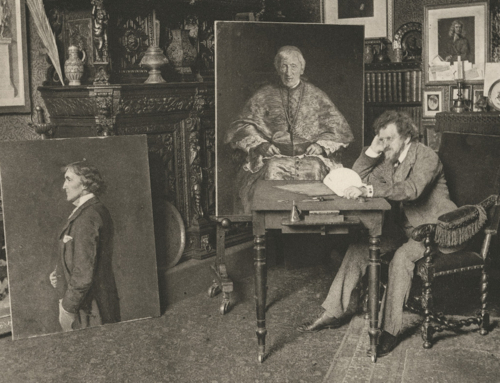Pope Francis has explicitly mentioned the plight of modern Christian martyrs no fewer than four times in his homilies and public statements since Palm Sunday. The only reference that has really made the headlines was his Divine Mercy Sunday pronouncement describing the 1915 slaughter of Armenians with the politically-charged term “genocide.” However, the Holy Father’s continual references to the modern martyrs have a more substantive message: we should not be silent to this martyrdom, just as he has not been silent. As early as June 2013, in the third month of his pontificate, Pope Francis started mentioning the modern martyrs. These references continued throughout 2014 and have increased this year, especially in light of the persecutions and killings in Iraq and Syria. We also have not been completely silent, as a recent blog post by Br. Augustine highlighting the plight of Dominican Sisters in Iraq demonstrates.
Pope Francis notes that in recent times, we have had more martyrs than the early Church did. Martyr means witness, and those we venerate as martyrs have witnessed to Jesus Christ with their lives. Only a small, if growing number of Christians are called to witness in this way, but we are all called to be witnesses in our lives. Persecutions, Pope Francis reminds us, are not limited to killings or threats of violence. Sometimes Christians “are forced away in an ‘elegant’ way, with ‘white gloves’: that too is persecution.”
All Christians—those living out their lives in relative peace and security, suffering persecution, or even facing death—are called to witness to the faith through our baptism. Our baptism is strengthened by confirmation, which as the Catechism teaches us, “gives us a special strength of the Holy Spirit to spread and defend the faith by word and action as true witnesses of Christ, to confess the name of Christ boldly, and never to be ashamed of the Cross” (CCC 1303). Each Easter we renew our baptismal promises, “by which,” as the preface to the renewal reminds us, “we once renounced Satan and his works and promised to serve God in the holy Catholic Church.” Do we really believe our public proclamation of “yes” to renouncing Satan, his works, and his empty show; to believing in the Father, the Son, the Holy Spirit, the Holy Catholic Church, the communion of saints, the forgiveness of sins, the resurrection of the body, and life everlasting? I would answer, “Yes, indeed, I do believe.”
But do I believe and profess my faith unconditionally, in the face of persecution and threats of death, or even my own natural death? I genuinely hope so and pray often for the grace of final perseverance, but I honestly don’t know. Pope Francis emphasizes that “there must be no conditions” as we follow Christ. And yet, I know that I am very weak and I compromise and place conditions on my faith and my hope. Shusako Endo’s historical novel Silence, based on the missionary priests in 17th-century Japan who apostatized, leaves me unsure of how I would ultimately respond.
When persecutions come, and Christ assures us they will, we are advised not to worry about our defense. The proper words and actions will come to us from the Holy Spirit when they are necessary (cf. Mk 13:9-13). We are not alone, and the multitude of martyrs from the early Church as well as in this age gives us great cause for hope. As Pope Francis reminds us, it is with the blood of the martyrs that the Church grows. May we plant ourselves firmly in their footsteps, living our entire lives as witnesses to Jesus Christ as Lord and King, even if life itself is asked of us. Thus, the blood of the martyrs will not have been shed in vain.
All you holy men and women, martyrs of the Church, pray for us.
✠
Image: Konstantin Dmitriyevich Flavitsky, Christian Martyrs in the Colosseum







